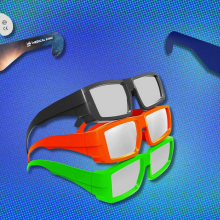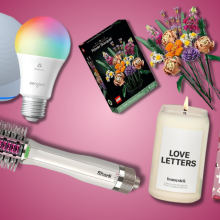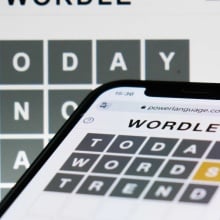In a move designed to prevent teenagers from repetitively watching potentially harmful videos on YouTube, the streaming platform announced Thursday that it will limit repeated recommendations of videos featuring certain themes to U.S. teens.
Currently, YouTube is limiting repetitive exposure to videos that compare physical features and favor some types over others, idealize specific fitness levels or body weights, or depict social aggression in the form of non-contact fights and intimidation. While these videos don't violate the platform's policies, repeated viewings could be harmful to some youth. YouTube already prohibits videos of fights between minors.
James Beser, director of product management for YouTube Kids and Youth, announced the new policy in a blog post Thursday.
Beser said that the company's youth and family advisory committee, which comprises independent experts in child development and digital learning and media, helped YouTube identify categories of content that "may be innocuous as a single video, but could be problematic for some teens if viewed in repetition."
He noted that teens are more likely to develop negative ideas about themselves when consuming online media that focuses on "ideal standards."
Allison Briscoe-Smith, a child psychologist and member of the committee, said in the blog post that such content can "emphasize potentially problematic messages," which can in turn affect how teens see themselves. Limited repeated recommendations will go into effect in other countries in the next year, according to the post.
The new policy comes amidst heavy scrutiny and criticism of the way social media platforms can influence youth mental health and well-being.
In May, the U.S. Surgeon General issued an advisory warning about youth social media use involving a "profound risk of harm." In September, The Mental Health Coalition convened a group of experts to begin creating a "first ever" rating system across social media, search engines, and gaming platforms.
Beser's announcement on Thursday also included updates to existing youth well-being features.
"Take a Break" and "Bedtime" reminders, which have been in place since 2018, will now appear as a full-screen takeover and will surface more frequently, especially for viewers younger than 18. These reminders are turned on by default for youth accounts.
YouTube's crisis resource panels will also now appear in full-screen mode, which YouTube hopes will encourage viewers to pause and explore a panel's topics when searching the platform for information related to suicide, self-harm, and eating disorders.
Beser framed the new policy and updates as part of a comprehensive effort to "build great experiences" for young users.
"We recognize the important role that YouTube can play in the life of teens and are deeply committed to ensuring time on YouTube is time well spent," Beser wrote.
Topics Mental Health Social Good YouTube























